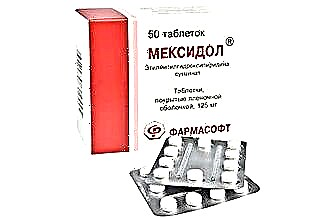Camphor oil is an agent with a pronounced antiphlogistic, bactericidal, antiseptic and local irritating effect. For therapeutic purposes, only a 10% solution of camphor based on vegetable oil is used. The systematic use of the drug helps to eliminate inflammatory processes in the ENT organs at the initial stages of the development of infectious diseases.
 By instilling camphor oil into the nose, it is possible to eliminate colonies of pathogens in the foci of inflammation. Due to this, the regression of catarrhal processes is accelerated, which helps to restore the integrity of the damaged mucosa. Camphor accelerates lymph flow and blood circulation, thereby eliminating swelling and, accordingly, facilitating nasal breathing.
By instilling camphor oil into the nose, it is possible to eliminate colonies of pathogens in the foci of inflammation. Due to this, the regression of catarrhal processes is accelerated, which helps to restore the integrity of the damaged mucosa. Camphor accelerates lymph flow and blood circulation, thereby eliminating swelling and, accordingly, facilitating nasal breathing.
Conventionally, camphor oil is divided into two types: "pharmacy" and essential. For medical purposes, camphor based on vegetable oil or alcohol is used to treat colds. The composition of the drug contains a minimum amount of toxic substances, so it can be used as part of pediatric therapy as nasal drops or medicine for inhalation.
Highly concentrated ethereal solutions obtained by distillation from camphor laurel are widely used in aromatherapy. Aromatic baths have a beneficial effect on the condition of the skin and respiratory organs, which is associated with the ability of camphor vapors to thin mucus in the nasopharynx. However, it should be borne in mind that in large quantities, essential oil can provoke adverse reactions such as dizziness, nausea, headache, etc.
It is undesirable to use pharmacy and camphor essential oils for the treatment of children under 2 years of age.
Pharmacological properties
Can camphor oil drip into the nose? Experts warn that the preparation contains components with toxic effects. An overdose can cause a deterioration in health and the occurrence of burns in the nasopharyngeal mucosa. If used correctly, camphor has the following effect:
- anti-inflammatory - promotes the resorption of infiltrates in the foci of inflammation;
- pain reliever - reduces the sensitivity of pain receptors, which helps to relieve discomfort;
- locally irritating - causes reflex reactions in the ciliated epithelium, which leads to an acceleration of blood circulation;
- antiseptic - disinfects the mucous membrane, which contributes to the regression of catarrhal processes;
- bactericidal - prevent the development of pathogenic bacteria, thereby reducing the risk of sinusitis;
- wound healing - improves tissue trophism, which leads to the restoration of the integrity of the ciliated epithelium.
The drug can cause an allergic reaction. Before using it, you should consult a specialist.
Operating principle
 Direct contact of camphor oil with the nasopharyngeal mucosa promotes the excitation of receptors, which is the reason for the reflex action of the drug. Irritation of tissues leads to an acceleration of blood circulation, as a result of which the mucous membrane receives much more nutrients from the blood flow. This contributes to the acceleration of metabolic processes in cells, which entails an acceleration of regeneration.
Direct contact of camphor oil with the nasopharyngeal mucosa promotes the excitation of receptors, which is the reason for the reflex action of the drug. Irritation of tissues leads to an acceleration of blood circulation, as a result of which the mucous membrane receives much more nutrients from the blood flow. This contributes to the acceleration of metabolic processes in cells, which entails an acceleration of regeneration.
When the receptors are irritated in the ciliated epithelium, endorphins, enkephalins and other peptides are released, which reduce vascular permeability and the sensitivity of nerve endings. The systematic use of the drug leads to a decrease in pain and swelling caused by inflammatory reactions in the tissues.
The local reflex effect of camphor oil leads to an increase in tissue reactivity, which contributes to the restoration of local immunity. Thus, the process of degradation of the pathogenic flora in the lesions is accelerated, which speeds up recovery.
Cold drops
Hypersecretion of mucus in the nasopharynx is due to the presence of inflammatory processes in the ENT organs. To stop the manifestations of rhinitis, herbalists recommend using drops based on "pharmacy" camphor oil. In the early stages of the development of inflammation, the drug promotes the liquefaction and evacuation of sputum, which greatly facilitates nasal breathing.
How to properly use camphor oil for a cold? To prepare drops, you must:
- mix camphor and vegetable oil with propolis tincture in equal parts;
- heat the oil solution to 38 degrees;
- drip 3 drops of the product into each nostril.
To speed up the healing process, it is advisable to clear the nasopharynx of mucus before instilling the drug. To do this, rinse the nasal passages with a weak saline solution with the addition of 2-3 drops of iodine.
Inhalation
Why is camphor oil useful for a cold? Vapors of camphor oil gently affect the nasopharyngeal mucosa, which stimulates the acceleration of blood circulation. Due to this, the outflow of lymph from the affected tissues is normalized, due to which the inner diameter of the nasal passages increases and, accordingly, breathing is facilitated. To stop inflammation in the nasopharynx, experts recommend inhalation.
Inhalation is one of the most effective ways to relieve cold symptoms. Inhalation of vapors of the drug contributes to the regression of catarrhal processes not only in the nose, but also in the mucous membrane of the oropharynx. To eliminate signs of SARS during inhalation, you can use the following recipes for preparing medicinal mixtures:
- Melt 1 tsp in 250 ml of hot water. honey, adding 10 drops of the drug and 3 drops of tea tree and eucalyptus essential oil to the solution;
- dissolve in 1 liter of boiling water, 1 tbsp. sea salt and soda; add 15 drops of camphor and sea buckthorn oil to the product;
- Heat ½ l of chamomile broth to 40 degrees, adding 10 drops of camphor oil and propolis tincture to the liquid.
To prevent the occurrence of adverse reactions, perform the procedure for 7-10 minutes. After inhalation, drip oil-based drops into the nose to soften and moisturize the mucous membrane.
Sinusitis treatment
Sinusitis is one of the most common complications of sluggish rhinitis. It is possible to eliminate pathological processes in the maxillary sinuses by heating the tissues, but only at the stage of resolving the inflammation. For these purposes, herbalists recommend using warming cakes with camphor oil.
To prepare a remedy, you must:
- mix 5 tbsp. flour with 2 tbsp. honey;
- add 2 tbsp to the dough. camphor oil;
- apply the cake to the area of the maxillary sinuses.
Important! It is undesirable to warm up the maxillary sinuses with the development of a bacterial infection. A local increase in temperature will only contribute to the development of pathogens.
Intensive heating of the affected mucous membranes helps to remove mucus containing pathogenic flora from them. Regular performance of the procedure stimulates the regression of catarrhal processes, which is due to a decrease in the number of pathogens in the maxillary sinuses.
Treatment of children
 Can camphor oil be used for children with a cold? It should not be forgotten that the composition of the drug contains toxic substances, so it is undesirable to bury it in the child's nose. To speed up the healing process, experts advise rubbing.An increase in body temperature activates the immune system, which contributes to the elimination of pathogenic viruses in the foci of inflammation. To relieve the symptoms of rhinitis, you can use the following recipe:
Can camphor oil be used for children with a cold? It should not be forgotten that the composition of the drug contains toxic substances, so it is undesirable to bury it in the child's nose. To speed up the healing process, experts advise rubbing.An increase in body temperature activates the immune system, which contributes to the elimination of pathogenic viruses in the foci of inflammation. To relieve the symptoms of rhinitis, you can use the following recipe:
- mix a small amount of melted pork butter with turpentine;
- add 1 tbsp to the product. "Pharmacy" camphor oil;
- rub the chest and back of the child with the prepared mixture;
- after the procedure, cover the child with a warm blanket.
Do not use this medicine on children who are prone to allergic reactions.
Warming compresses can be used as an alternative to rubbing. To do this, a small amount of goat fat is mixed with honey, adding 10 drops of camphor oil to the mixture. In the prepared product, gauze is moistened and applied to the chest, warming with cellophane and a woolen scarf. It is more advisable to put compresses for the child at night in order to prolong the therapeutic effect of the drug.
Contraindications
When used topically, camphor oil can cause allergic reactions and tissue swelling. That is why it is advisable to consult a specialist before using the drug. Direct contraindications to the use of a pharmaceutical product are:
- dermatitis;
- eczema;
- epilepsy;
- pregnancy;
- trophic ulcers;
- burns;
- mechanical damage;
- cardiovascular diseases;
- bronchial asthma;
- tendency to convulsive reactions.
The occurrence of adverse reactions is most often indicated by skin hyperemia, swelling and nausea. If signs are found, you should stop using camphor oil. To eliminate the symptoms of an allergic reaction, you can use antihistamines such as Suprastin, Erius, Zirtek, Claritin, etc.



